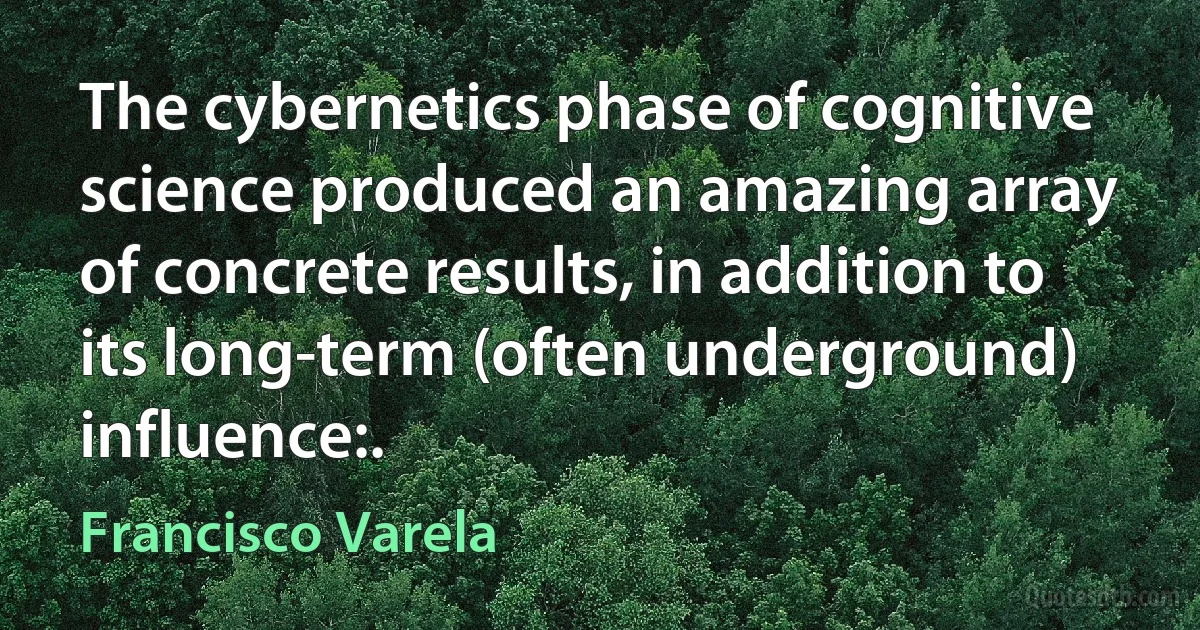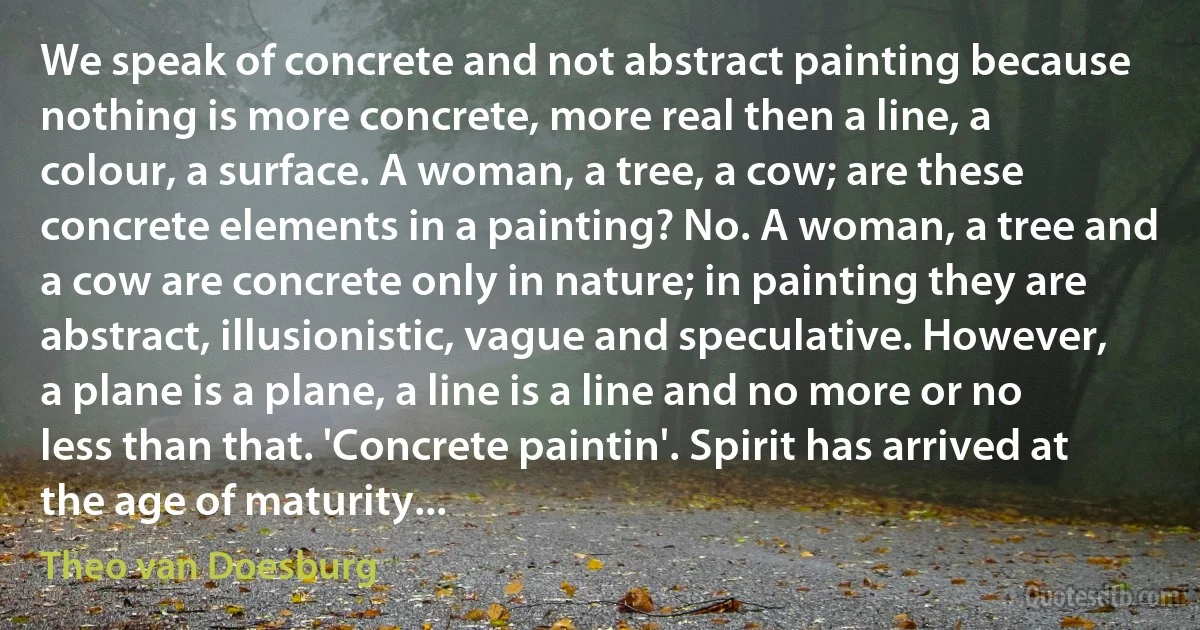Concrete Quotes - page 20
Perhaps the efforts of the true poets, founders, religions, literatures, all ages, have been, and ever will be, our time and times to come, essentially the same to bring people back from their present strayings and sickly abstractions, to the costless, average, divine, original concrete.

Walt Whitman
The term Model-Driven Engineering (MDE) is typically used to describe software development approaches in which abstract models of software systems are created and systematically transformed to concrete implementations.... Full realizations of the MDE vision may not be possible in the near to medium-term primarily because of the wicked problems involved. On the other hand, attempting to realize the vision will provide insights that can be used to significantly reduce the gap between evolving software complexity and the technologies used to manage complexity.

Bernhard Rumpe
Emphasize your strengths on your resume, in your cover letters and in your interviews. It may sound obvious, but you'd be surprised how many people simply list everything they've ever done. Convey your passion and link your strengths to measurable results. Employers and interviewers love concrete data.

Marcus Buckingham
Universal History exhibits the gradation in the development of that principle whose substantial purport is the consciousness of Freedom. The analysis of the successive grades, in their abstract form, belongs to Logic; in their concrete aspect to the Philosophy of Spirit.

Georg Wilhelm Friedrich Hegel
I am not referring to the absolute, infinite concept of peace and good will of which some fantasies and fanatics dream. I do not deny the value of hopes and dreams but we merely invite discouragement and incredulity by making that our only and immediate goal. Let us focus instead on a more practical, more attainable peace - based not on a sudden revolution in human nature but on a gradual evolution in human institutions - on a series of concrete actions and effective agreements which are in the interest of all concerned.

John F. Kennedy
I have received feedback from friends who have witnessed kidnappings or relatives of victims who have been subjected to abduction and have paid ransom for their releases. There's a segment of the community who is already in panic and there must be a concrete action to abate these crimes and prevent the spread of alarm among the public. These are crimes that do not even hide under the cloak of darkness anymore. It is very disturbing. These are the reported ones, but I am sure there are more which have remained unreported by the victims and their families out of fear of retaliation from their aggressors. I ask the PNP to intensify its campaign against criminals and beef up security to protect the public. The people need to be assured that they can walk our streets to and from their homes.

Francis Escudero
Altruism is an instinct we've inherited from the small society where we knew for whom we work, whom we serve. When you pass from this, as I like to call it, 'concrete society', where we are guided by what we see, to the abstract society which far transcends our range of vision, it becomes necessary that we are guided not by the knowledge of the effect of what we do, but by some abstract symbols. Now, the only symbol which tells us where we can make the best contribution is profit. And in fact by pursuing profit, we are as altruistic as we can possibly be, because we extend our concern to people who are beyond our range of personal conception. This is a condition which makes it possible to produce what I call an extended order, an order which is not determined by our aim, by our knowing what are the most urgent needs, but by an impersonal mechanism which by a system of communication puts a label on certain things which is fully impersonal.

Friedrich Hayek
Hayek sees that the zero-sum vision is fired by an implacable negative energy. It is not the concrete vision of some real alternative that animates the socialist critic of the capitalist order. It is hostility toward the actual, and in particular toward those who enjoy advantages within it. Hence the belief in equality remains vague and undefined, except negatively. For it is essentially a weapon against the existing order – a way of undermining its claims to legitimacy, by discovering a victim for every form of success. The striving for equality is, in other words, based in ressentiment in Nietzsche's sense, the state of mind that Max Scheler identified as the principal motive behind the socialist orthodoxy of his day. It is one of the major problems of modern politics, which no classical liberal could possibly solve, how to govern a society in which resentment has acquired the kind of privileged social, intellectual, and political position that we witness today.

Friedrich Hayek
If we had been as ready in 1924 with definite concrete proposals as we are today, we could have gone to the Labour Party and said: "Here are our proposals with regard to the land, electricity, and the mines, and the condition of our support is that you should deal with them." We should have now been in the third year of carrying out a great programme of social reform instead of being in the horrible muddle we are in at the present moment. Are we going to get another chance? I think we are.

David Lloyd George
When at the beginning of the so-called modern age, at the Renaissance, the pagan sense of religion came to life again, it took the concrete form in the knightly ideal with its codes of conduct of love and honor. But it was a paganism Christianized, baptized. "Woman - la donna - was the divinity enshrined within those savage breasts. Whosoever will investigate the memorials of primitive times will find this ideal of woman in its full force and purity; the Universe is woman.

Miguel de Unamuno
She was surprised by Dallas's ugliness. Even with the sun rising behind it, the city looked as if it had been built to withstand bombardment. She'd never seen so much concrete in one place.
"What do you think?” Rendell said in the cab. "Nice, huh?”
"Where are the trees?”
"There are some parks.” He craned his neck. "I think you can see one...” A heavy truck roared alongside them. The cab darkened like it was descending into the earth. Violet put her fingers in her ears. "Past that traffic accident.”.

Max Barry



